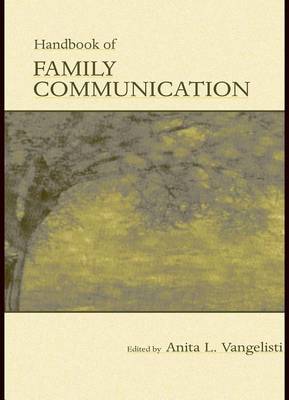Routledge Communication
1 total work
With a synthesis of research on issues key to understanding family interaction, as well as an analysis of many theoretical and methodological choices made by researchers studying family communication, the Handbook serves to advance the field by reframing old questions and stimulating new ones. The contents are comprised of chapters covering:
theoretical and methodological issues influencing current conceptions of family; research and theory centering around the family life coursecommunication occurring in a variety of family forms individual family members and their relationshipsdynamic communication processes taking place in familiesfamily communication embedded in social, cultural, and physical contexts.Key changes to the second edition include:
updates throughout, providing a thorough and up-to-date overview of research and theorynew topics reflecting the growth of the discipline, including chapters on singles as family members, emerging adults, and physiology and physical health.Highlighting the work of scholars across disciplines--communication, social psychology, clinical psychology, sociology, family studies, and others--this volume captures the breadth and depth of research on family communication and family relationships. The well-known contributors approach family interaction from a variety of theoretical perspectives and focus on topics ranging from the influence of structural characteristics on family relationships to the importance of specific communication processes.
